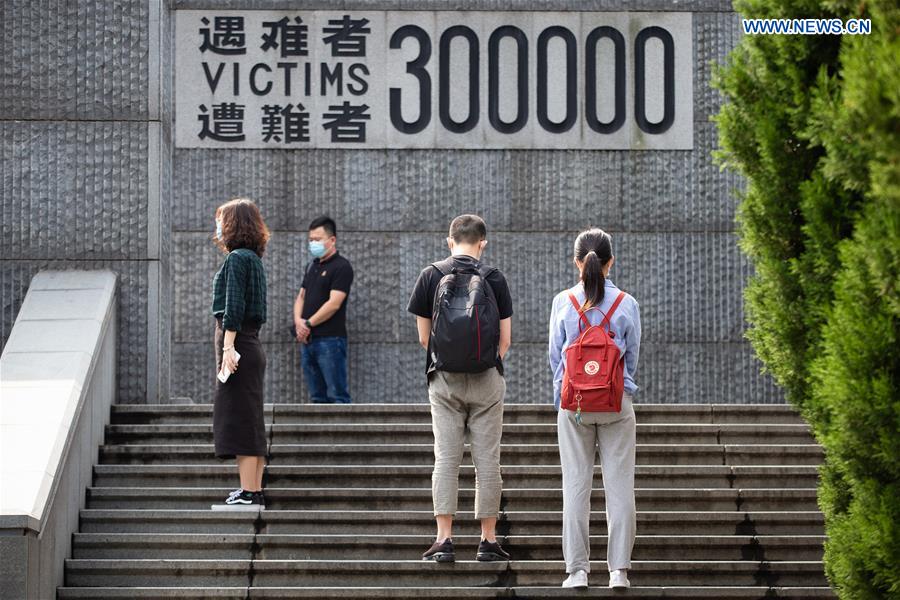Amid 80th anniversary events, nation should draw lessons from wartime aggression, experts say

For Japan, the 80th anniversary in early September of its defeat in the Chinese People’s War of Resistance Against Japanese Aggression (1931-45) and the World Anti-Fascist War offers a chance to face historical questions justly to move ahead fairly.
Several Japanese observers and experts said that, as an aggressor country, Japan should draw lessons from past wrongs and allow future generations to pass on the truth of war atrocities; otherwise, regional mistrust will persist.
In early August, former Japanese prime minister Yukio Hatoyama said that true patriotism means confronting historical facts and acknowledging past mistakes with courage.
At a symposium themed “80 Years since the End of the Pacific War, 80 Years since Japan’s Defeat: Toward Building a Peaceful World”, he said: “I believe that promoting peace and the development of democracy, based on a profound reflection on history, is the path Japan should follow.”
Chinese Assistant Foreign Minister Hong Lei said at a news conference on Aug 28 that China urges Japan to reflect deeply upon its crimes of aggression, make a clean break with militarism, and pursue the right path of peaceful development, good neighborliness, and friendship.
Takakage Fujita, secretary-general of the Association for Inheriting and Propagating the Murayama Statement, said at the symposium earlier that the term “the end of the war” fails to convey historical truth.
Although almost all Japanese media use this expression, the concept cannot reveal the history of Japanese militarism’s aggression and colonial rule over China, the Korean Peninsula, and other Asian countries, he said.
Fujita pointed out that Japan did not thoroughly hold war criminals accountable after the war, and that some senior government officials and former cabinet members have repeatedly denied the history of aggression and colonial rule.
Even though the 1995 Murayama Statement, which acknowledges Japan’s wartime mistakes, received positive responses from Asian countries, domestically, opposition to the statement from the Liberal Democratic Party’s right-wing factions has persisted to this day.
Responding to a question on Japan reportedly urging European and Asian countries to refrain from attending the military parade and other events in Beijing, Chinese Foreign Ministry spokesman Guo Jiakun said at a news briefing on Aug 26 that China has lodged serious representations with Japan.
“To view and treat history correctly is an important prerequisite for Japan’s post-war return to the international community. It is the political foundation of Japan’s relations with neighboring countries, and more importantly, a yardstick for Japan’s commitment to peaceful development,” Guo said.
Tomoyoshi Kimura, director of the Northeast Asia Dynamics Study Group, said people in Japan still bear a responsibility to inherit and convey historical lessons, as Japan’s history of aggression will not disappear.
“We must recognize that, as perpetrators, we bear this responsibility. We need to be fully aware of this and have the resolve to confront history,” he said.
Atsushi Koketsu, a professor emeritus of Yamaguchi University, said, “Many Japanese think, ‘I wasn’t born during the war, so it has nothing to do with me,’ but I often tell my students that although you weren’t born then, you have a responsibility to pass down the history of the war.”
He criticized Japanese society for dwelling on its own suffering and rarely confronting the roots of disasters.
Regarding the atomic bombings of Hiroshima and Nagasaki and the Tokyo air raids, Japanese society repeatedly calls for such disasters never to be repeated, Koketsu said. “But the question is, why did these disasters happen? Few people will voluntarily say it was because Japan launched a war of aggression.”
“Japan must face and reflect on its history of aggression, transforming painful lessons into a force for peace,” Koketsu said. “Otherwise, regional distrust will persist, and history could repeat itself.”
Xinhua contributed to this story.
Contact the writer at houjunjie@chinadaily.com.cn


